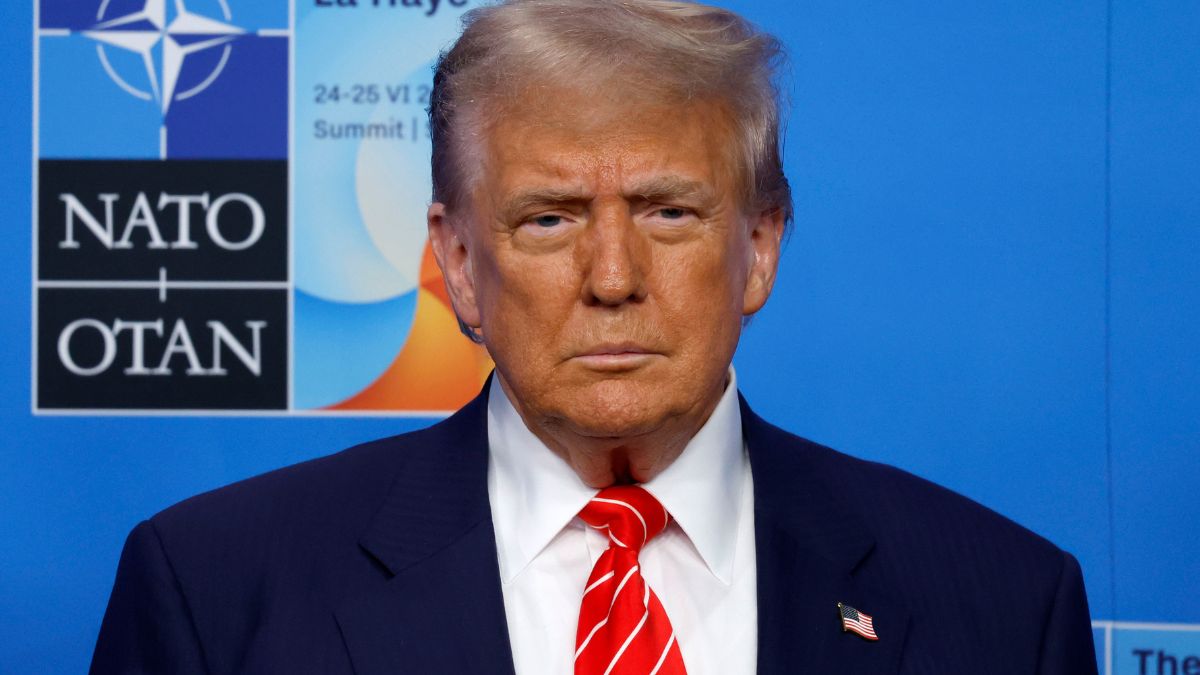
Photo by Omar Havana/Getty Images”
NATO is defending against its own member, but Trump is still wearing Putin-tinted glasses.
NATO is officially launching “Eastern Sentry,” a new initiative to bolster defenses along its eastern flank in response to recent Russian drone incursions into Polish airspace. The announcement comes after Polish and Dutch fighter jets were scrambled earlier this week to take down Russian drones, marking one of the most serious violations of a NATO country’s sovereignty yet.
This isn’t just about sending more planes, according to Politico, it’s a “entire new defense design” that will completely change how the alliance deals with threats like these. Secretary-General Mark Rutte said the new mission will “bolster our posture along eastern flank” and is meant to be a direct response to Russia’s “reckless” and “unacceptable” actions. It will integrate existing air policing and ground-based defense systems into a more cohesive and comprehensive strategy.
The program is modeled after “Baltic Sentry,” which uses frigates, aircraft, and drones to monitor the Baltic Sea, but this time around, it’s focused on a more active and frankly, a much-needed counter-drone strategy. A big part of Eastern Sentry is that it will be a multi-domain operation, which is a fancy way of saying it will use a mix of traditional and new technologies. Supreme Allied Commander Europe, General Alexus Grynkewich, said that NATO allies will be experimenting with new counter-drones, sensors, and weapons.
NATO needs protection from Russia, which is bad for everyone involved
This is a huge deal, as it shows NATO is actively trying to get ahead of the curve when it comes to the kind of warfare we’re seeing in Ukraine. Grynkewich himself has said that future conflicts will be “unmanned-dense,” and that NATO needs to “lower cost weapons that we can use to defend ourselves to make this a sustainable operation over time.” The way he talks about it, it sounds like they’re trying to build a modern-day “drone wall” to protect their borders.
Several NATO members have already committed to the mission, including Denmark, France, the U.K., and Germany. They’ve offered everything from fighter jets and ships to ground-based air defense systems to help reinforce the eastern flank. It’s clear that the allies are taking this seriously, especially after the close call in Poland. It’s also interesting to see the different takes on the incident itself. While Poland and Germany have described the incursion as intentional, Rutte has been more cautious, echoing comments from U.S. President Donald Trump, who suggested it could have been a mistake. “We are still assessing,” Rutte said, adding, “Whether or not Russia’s actions were deliberate, they violated NATO airspace. The question is relevant but not that relevant — in both cases, it’s reckless, unacceptable.”
This is all happening at a time when Trump has been openly pushing a more negotiated settlement in Ukraine, and has been all over the place with his comments. He has also been quick to insist that his own diplomacy with Vladimir Putin has already pulled the world back from the brink of war. To be fair, he’s been pretty consistent about one thing in the area: Europe doesn’t consider him an ally.
It’s an incredibly tense situation, and while Trump doesn’t think Putin is starting World War 3, NATO is clearly not taking any chances. This new Eastern Sentry program is a solid step toward protecting their borders from these kinds of reckless actions, regardless of whether they’re intentional or not. It’s a clear message to Russia that NATO is not only watching but actively preparing to defend every inch of its territory.



Published: Sep 13, 2025 03:54 am